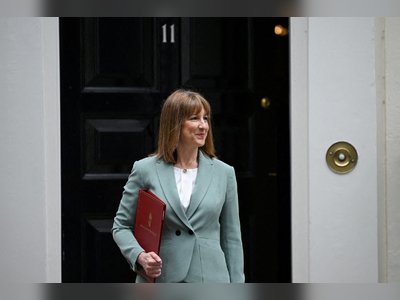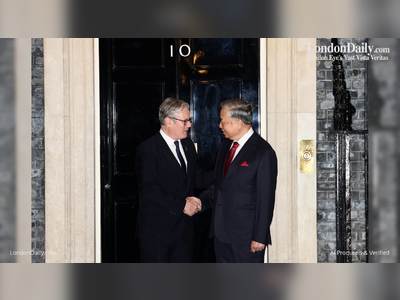UK Government Split Over Backing Brazil’s $125 Billion Tropical Forest Fund Ahead of COP30
Treasury officials question cost and timing of UK’s potential contribution to Brazil’s global forest-finance plan as Starmer prepares for COP30 summit in the Amazon
The UK government is divided over whether to support a multibillion-dollar global fund designed to protect tropical forests, amid concerns from Treasury officials over the potential cost to taxpayers.
The debate threatens to overshadow Prime Minister Keir Starmer’s planned appearance at the COP30 climate summit in Belém, Brazil, next month.
The fund, known as the Tropical Forests Forever Facility (TFFF), is the centrepiece of Brazilian President Luiz Inácio Lula da Silva’s COP30 agenda.
It aims to raise up to $125 billion by offering returns to investors and donor nations while rewarding tropical forest countries for maintaining forest cover.
Brazil has already pledged an initial $1 billion and is urging the UK, Germany, Norway, and the United Arab Emirates to contribute.
Several UK ministers reportedly back joining the scheme as part of a renewed focus on nature-based climate finance.
However, Treasury officials have raised questions about the size of any British contribution, citing fiscal constraints and doubts over whether the fund offers tangible value for money.
The Treasury is said to favour a smaller, performance-linked investment rather than a large upfront commitment.
Supporters within government argue that UK participation would bolster Britain’s climate leadership and strengthen ties with Brazil, a key ally in global climate negotiations.
They also see the initiative as an opportunity to channel private capital into conservation while promoting fair returns for developing nations that safeguard global biodiversity.
Critics, however, warn that turning forest preservation into a tradable asset could carry risks, including limited oversight and inequitable distribution of benefits.
They also highlight the UK’s existing funding shortfalls in meeting its domestic and international climate-finance pledges, with an estimated £1.7 billion gap in nature spending projected by 2026.
The internal split comes as Starmer’s government prepares to showcase its climate agenda at COP30, where the prime minister is expected to share a platform with President Lula.
Unless consensus is reached soon, officials fear the UK could arrive at the summit without a major funding announcement, weakening its influence in global climate-finance discussions and diminishing its ability to shape the emerging tropical forest agenda.
The debate threatens to overshadow Prime Minister Keir Starmer’s planned appearance at the COP30 climate summit in Belém, Brazil, next month.
The fund, known as the Tropical Forests Forever Facility (TFFF), is the centrepiece of Brazilian President Luiz Inácio Lula da Silva’s COP30 agenda.
It aims to raise up to $125 billion by offering returns to investors and donor nations while rewarding tropical forest countries for maintaining forest cover.
Brazil has already pledged an initial $1 billion and is urging the UK, Germany, Norway, and the United Arab Emirates to contribute.
Several UK ministers reportedly back joining the scheme as part of a renewed focus on nature-based climate finance.
However, Treasury officials have raised questions about the size of any British contribution, citing fiscal constraints and doubts over whether the fund offers tangible value for money.
The Treasury is said to favour a smaller, performance-linked investment rather than a large upfront commitment.
Supporters within government argue that UK participation would bolster Britain’s climate leadership and strengthen ties with Brazil, a key ally in global climate negotiations.
They also see the initiative as an opportunity to channel private capital into conservation while promoting fair returns for developing nations that safeguard global biodiversity.
Critics, however, warn that turning forest preservation into a tradable asset could carry risks, including limited oversight and inequitable distribution of benefits.
They also highlight the UK’s existing funding shortfalls in meeting its domestic and international climate-finance pledges, with an estimated £1.7 billion gap in nature spending projected by 2026.
The internal split comes as Starmer’s government prepares to showcase its climate agenda at COP30, where the prime minister is expected to share a platform with President Lula.
Unless consensus is reached soon, officials fear the UK could arrive at the summit without a major funding announcement, weakening its influence in global climate-finance discussions and diminishing its ability to shape the emerging tropical forest agenda.










